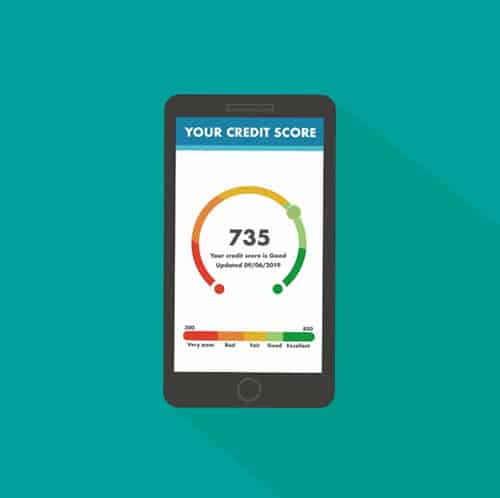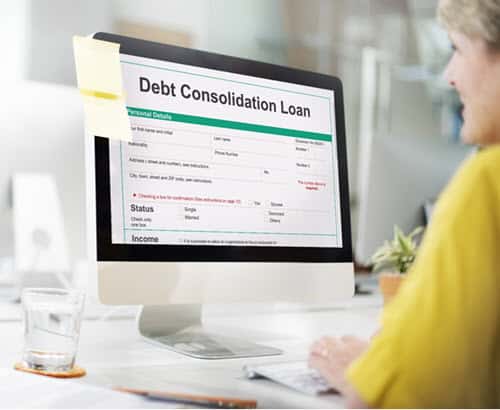
There are times in life when you need to spend money on something important but you simply don't have the cash in hand. This is where personal loans come in to help you to achieve your goals, whether this is a new car, a new kitchen or even paying off an old debt that's costing you too much in interest.
There are many different types of loans out there on offer, but the most common personal loans taken out include:
Here's your guide to the different personal loan types.
What is a secured personal loan?
When you take out a secured personal loan you put up an asset as security against some or all of the amount. You can offer up a vehicle, some of the equity in your property, a term deposit balance or even jewellery.

If you fail to keep up with your payments, the lender can take possession of these assets to recoup the debt. This gives the lender more confidence in the loan, so you'll typically have a lower interest rate on the amount as a result.
The advantages of secured personal loans
You'll get lower interest and lower fees on the loan as it's deemed to be less risky. A secured loan is easier to be approved for, especially from reputable and responsible lenders.
The disadvantages
If you do fall behind on payments, the lender can repossess the asset, which may well be something you don't want to lose.
What is an unsecured loan?
An unsecured loan doesn't need you to pledge an asset as security. If you don't have much in the way of assets, you're best advised to look for unsecured solutions. You'll need to convince the lender that you can repay the amount though by showing payslips and expenditure, as well as by having a good to excellent credit rating.
The advantages of an unsecured loan
An unsecured personal loan can be an option if you don't have many assets. You'll get a lower interest rate than you would with a credit card.

The disadvantages
The penalties for late or missed payments are quite high.
Lenders can and will take legal action if you default.
You'll face higher fees and interest rates than you will with a secured loan.
What is a debt consolidation loan?
Debt consolidation loans are great for helping people to take control of their debts, even if they're not problematic. You bundle all your existing debts, whether they're loans, overdrafts or credit card balances under one umbrella debt, with one interest rate. The new interest rate should be low enough to make your single monthly payment lower than the sum of your old, separate payments.
The advantages of debt consolidation loans
You can pay your debts off faster and more comfortably. You only have one payment to keep track of each month.

The disadvantages
The disadvantages
You'll still need to make the payment and if you have a history of debt problems, you can fall back into your old habits.
What is a car loan?
A car loan is a secured loan in which the asset is the vehicle itself. You automatically pledge the vehicle as security against your loan amount. Car loan interest rates are typically very attractive and it's a good option for buying a new or used vehicle.
The advantages of car loans
It's a cheap way to finance a vehicle, especially if you can put down a deposit as well. Sometimes you can repay the loan early.
The disadvantages
You may be restricted to certain vehicles, especially if you're looking at used cars. The lender can repossess your vehicle if you default. Many car loans discourage early repayment.

More about those interest rates
No matter which loan you take out, you can't avoid interest and at least some fees. You can choose between fixed and variable rates, though.
Fixed-rate personal loans
With a fixed interest rate, you'll know exactly what you'll be paying each month, which makes life much easier, as the rate doesn't change over the repayment term.
The advantages of fixed-rate loans
You don't have to worry about the cash rate rising.
You can plan ahead with more certainty.
The disadvantages
Fixed interest rates tend to be higher than variable.
You won't get the benefit of cash rate falls. You can't make extra payments to get ahead, without being penalised.
Variable-rate personal loans
With variable-rate loans, the interest rate can change at any time, in line with the country's cash rate. Your payments can go down as well as up.
The advantages of variable-rate loans
Interest rates are generally lower, as are fees, compared to fixed loans. Your payments will decrease if the cash rate falls.
The disadvantages
If interest rates rise, so do your payments. It can be harder to make long-term plans for the repayment because you might suddenly be paying more.
How long should loan terms be?
Most loans available in Australia have terms ranging from one to five years, with some repayment periods lasting up to seven or even 10 years. Three to five years is the average term, although yours will depend on how much you're borrowing and how quickly you can pay it back without either depriving yourself or paying too much in interest. The longer the term, the more you'll pay in interest (generally) simply because the balance exists for longer.
You need to find your optimal loan amount and repayment term combination by experimenting with a loan calculator. Always look at how much interest you'll ultimately pay, because for many people, the temptation is to make small repayments for longer. This is a false economy, though.
Features to look out for when you're choosing a personal loan
Low or no fees
Low fees, including the establishment, maintenance or early repayment fees.
Flexible repayments
If you can make the occasional overpayment without incurring big penalties then you can pay off your loan faster and with less interest.
A redraw facility
Some loans let you take the amount that you've paid off out again, which can be handy for unexpected bills.
The information contained on this web site is general in nature and does not take into account your personal situation. You should consider whether the information is appropriate to your needs, and where appropriate, seek professional advice from a financial adviser. If you or someone you know is in financial stress, contact the National Debt Helpline on 1800 007 007.